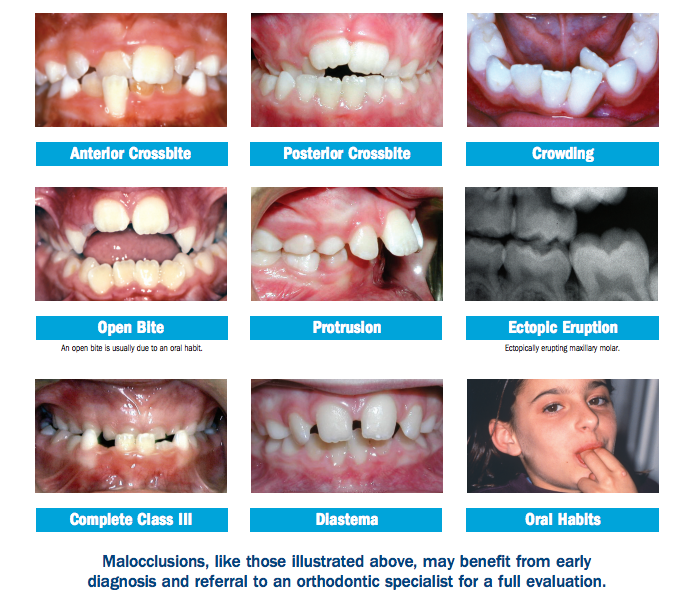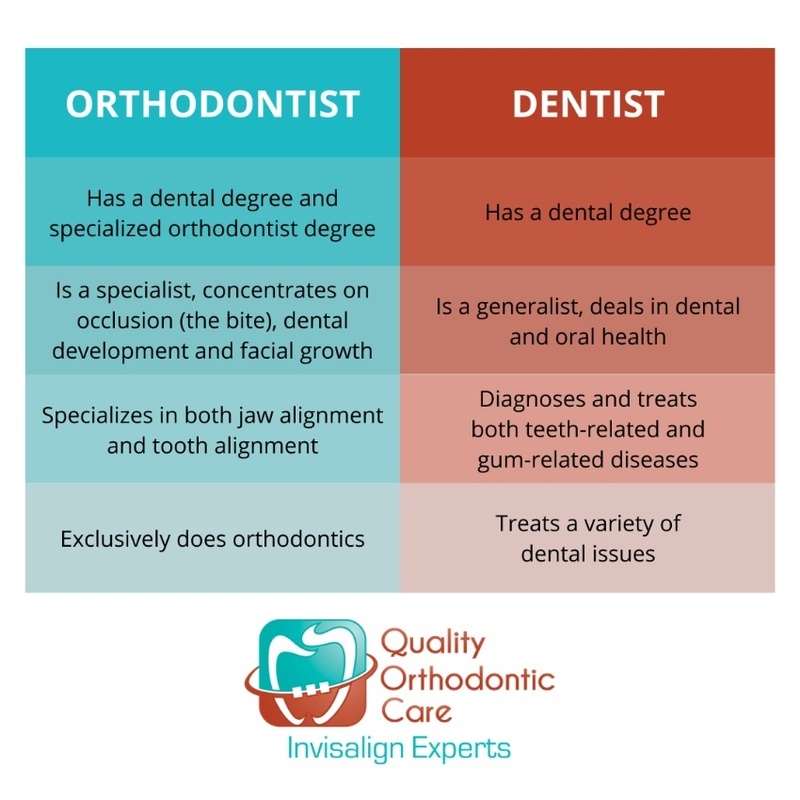Some Known Factual Statements About Causey Orthodontics
Some Known Factual Statements About Causey Orthodontics
Blog Article
10 Easy Facts About Causey Orthodontics Described
Table of Contents3 Easy Facts About Causey Orthodontics DescribedGetting My Causey Orthodontics To WorkMore About Causey OrthodonticsCausey Orthodontics Can Be Fun For EveryoneThe 7-Minute Rule for Causey OrthodonticsCausey Orthodontics Things To Know Before You Get ThisThe Basic Principles Of Causey Orthodontics
What is the distinction between a dentist and an orthodontist? All dental practitioners, including orthodontists, treat the teeth, gum tissues, jaw and nerves.
Orthodontists and dental professionals both provide dental look after individuals. Orthodontists can operate in a dental office and use the same treatments as various other dental practitioners. So you can consider both medical professionals who deal with periodontal and teeth issues. The major difference is that becoming an orthodontist calls for a certain specialty in treating the misalignment of the teeth and jaw.
Some Known Questions About Causey Orthodontics.
An orthodontist is a dentist that has undertaken training to specialize in the medical diagnosis, prevention and treatment of irregularities in the jaw and teeth. They can likewise identify prospective troubles in teeth alignment that may develop when problems are left neglected (emergency orthodontist near me).
This consists of all the required education and learning to come to be a general dental practitioner. According to the American Trainee Dental Organization (ASDA), it means you will need to have either a Medical professional of Medicine in Dental Care (DMD) or a Doctor of Oral Surgical Treatment (DDS). To put it simply, orthodontists need to complete oral college and after that acquire an orthodontics specialized education and learning.
Some orthodontists likewise get their masters in craniofacial biology. These programs concentrate on two specific locations or techniques: Dentofacial Orthopedics: This research study focuses on directing teeth and jaw advancement.
The Facts About Causey Orthodontics Revealed

 These include apparatus such as dental braces, retainers and Invisalign. So, what does an orthodontist do, and what do they concentrate on? The general goal of an orthodontist is to improve a person's bite. Not every person is birthed with straight teeth, and an orthodontist will certainly make certain that individuals get uniformly spaced straight teeth.
These include apparatus such as dental braces, retainers and Invisalign. So, what does an orthodontist do, and what do they concentrate on? The general goal of an orthodontist is to improve a person's bite. Not every person is birthed with straight teeth, and an orthodontist will certainly make certain that individuals get uniformly spaced straight teeth.
The Definitive Guide to Causey Orthodontics
The American Association of Orthodontists suggests your initial check up by age 7. You'll need to see your orthodontist if you have a misalignment in your teeth, likewise called malocclusion. Additionally, if you discover irregular bite patterns, a somewhat misshapen jaw, or when your teeth are overcrowded, you will likely need orthodontic treatment.
In enhancement, we offer adjustable therapy schedules, flexible repayment choices and an enjoyable, pleasurable experience.
An orthodontist is a dental professional trained to detect, prevent, and treat teeth and jaw abnormalities. They correct existing problems and are trained to recognize troubles that might develop in the future. Orthodontists collaborate with people of any ages, from kids to adults. People usually associate an ideal smile with good health and wellness.
The Greatest Guide To Causey Orthodontics
Malocclusion, or misaligned teeth, can cause dental problems, consisting of dental cavity, gum tissue disease, and tough or unpleasant eating. Not every person is birthed with straight teeth. If you have a poor bite or large spaces in between your teeth, you might intend to speak with a dental expert specializing in orthodontic care.
(Photo Credit Report: DigitalVision/Getty Images) Orthodontists make use of fixed and removable oral gadgets, like braces, retainers, and bands, to alter the placement of teeth in your mouth. Orthodontic therapy is for dental problems, consisting of: Uneven teethBite troubles, like an overbite or an underbiteCrowded teeth or teeth that are also much apartJaw misalignmentThe goal of orthodontic treatment is to enhance your bite.
The smart Trick of Causey Orthodontics That Nobody is Talking About

, but not all dental experts are orthodontists. They concentrate on 2 areas: Just how to correctly and securely move teeth Just how to correctly lead growth in the teeth, jaw, and faceOnce an orthodontist has actually finished training, they have the option to end up being board licensed.
Malocclusion leads to tooth overcrowding, a misshapen jaw, or irregular bite patterns. Malocclusion is generally treated with: Your orthodontist affixes metal, ceramic, or plastic square bonds to your teeth.
The Of Causey Orthodontics
If you have just small malocclusion, you may have the ability to use clear dental braces, called aligners, rather than standard braces. Some people need a headgear to aid move teeth into line with stress from outside the mouth. After braces or aligners, you'll need to put on a retainer. A retainer is a custom gadget that maintains your teeth in position.
Report this page